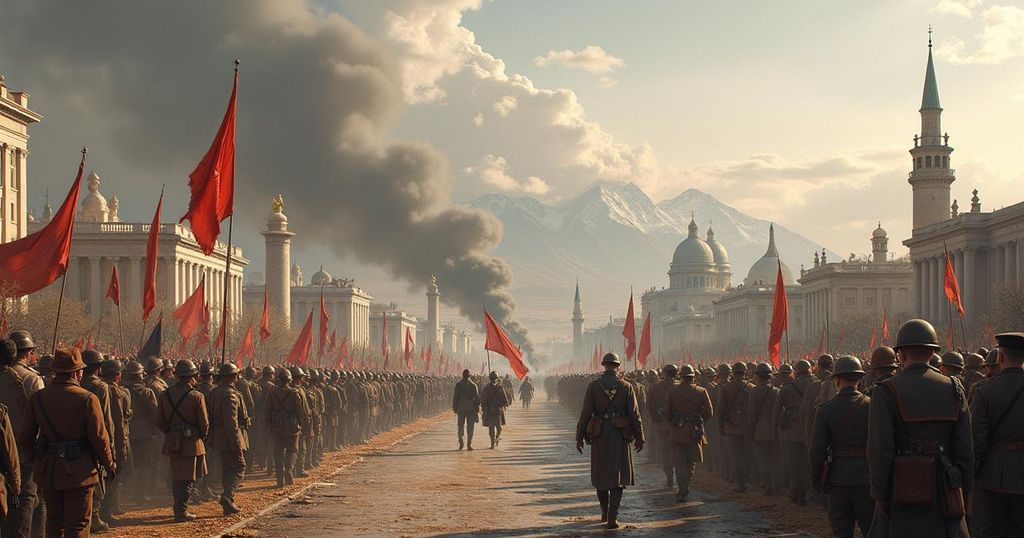The Greek Civil War: Political Turmoil and its Legacy
The Greek civil war emerged in the late 1940s from political divisions exacerbated by World War II, ultimately leading to significant upheaval and changes in governance. Following a period of royalist dominance and communist resistance, American intervention helped to defeat the communist forces by 1949. The aftermath saw an authoritarian regime develop post-war, leading to a military coup in 1967 and a national crisis that culminated in the establishment of democracy in 1974.
The civil war in Greece, which erupted in the late 1940s, was rooted in political divisions exacerbated by World War II and the subsequent struggle for power between various factions. With the conclusion of the Second World War, Greece faced a turbulent political landscape marked by the return of King George II and the establishment of a constitutional monarchy amidst growing tensions between royalist and communist forces. The initial elections in 1946 were heavily contested, leading to the dominance of the royalist right. As the division deepened, the establishment of a communist-led Democratic Army signified the onset of armed conflict. Despite being outnumbered, the communists managed to secure substantial territory due to external support and effective guerrilla warfare tactics. However, American intervention following the Truman Doctrine turned the tide, culminating in the defeat of the communist forces by 1949. In the post-war years, Greece struggled with the aftermath of the civil war, entering a phase characterized by authoritarian rule and slow economic recovery. Political power remained largely in the hands of the right until the early 1960s when disillusionment with the regime prompted calls for reform. The rise of Georgios Papandreou’s Centre Union Party promised progressive change, yet this was thwarted by crises, particularly the conflict over Cyprus. Following a military coup in 1967, a junta led by Col. Georgios Papadopoulos assumed control, imposing strict governance until a series of events culminating in the 1974 coup against the Cypriot president led to the Turkish invasion of Cyprus. This development precipitated a national crisis that ultimately resulted in the junta’s downfall, marking a significant shift toward democracy in Greece.
Greece’s historical context is critical to understanding the civil war and its subsequent political developments. The civil war arose after World War II as various factions vied for power in a country grappling with the effects of occupation and war. The political landscape was shaped by the presence of communist influences, nationalist sentiments, and external powers like the United States intervening to support anti-communist factions. The struggle for direction continued into the following decades, as Greece oscillated between authoritarianism and efforts at democratization, especially in light of international pressures and internal demands for political reform.
In conclusion, the Greek civil war marked a pivotal moment in the nation’s history, reflecting deep-seated political divisions and the struggle for governance in a post-war context. The aftermath of the conflict led to significant shifts in political structures, economic challenges, and social transformations as Greece moved towards a more democratic system. The interplay of internal dissent and external influences, particularly from the United States, played a decisive role in shaping the trajectory of the civil war and its long-term consequences for Greek society.
Original Source: www.britannica.com








Post Comment